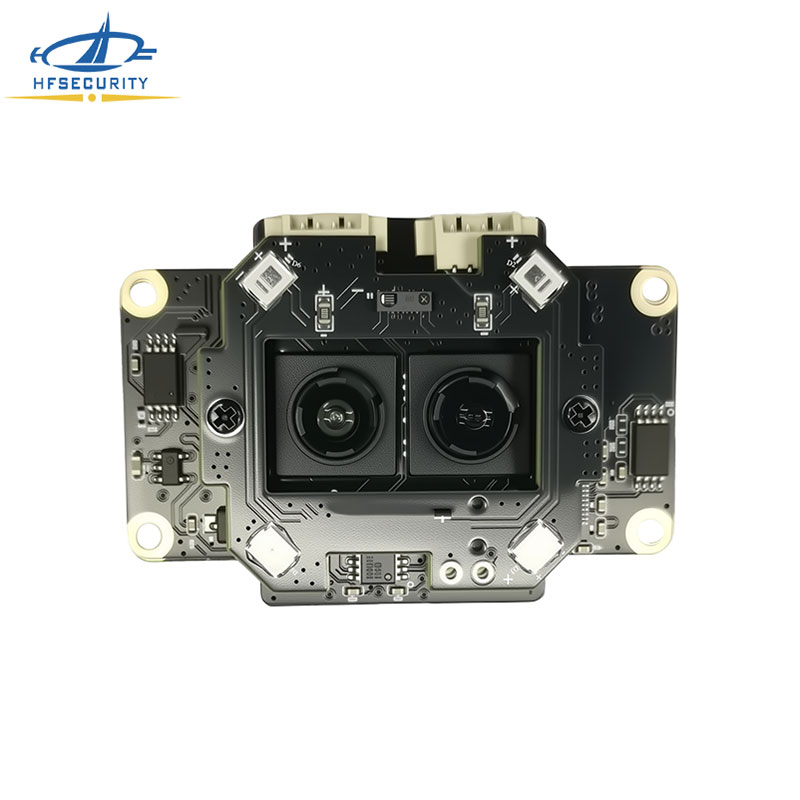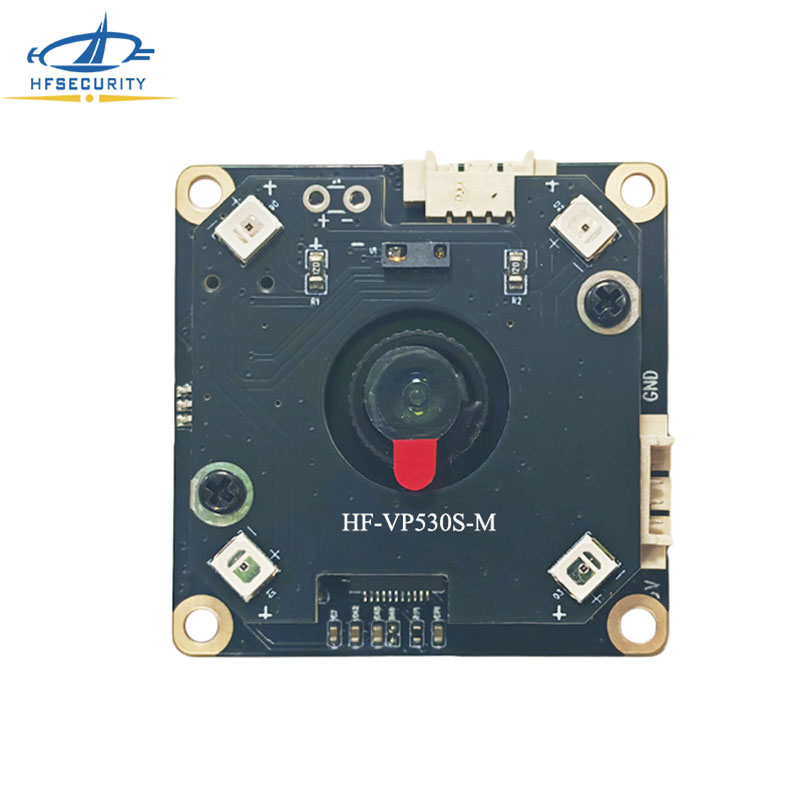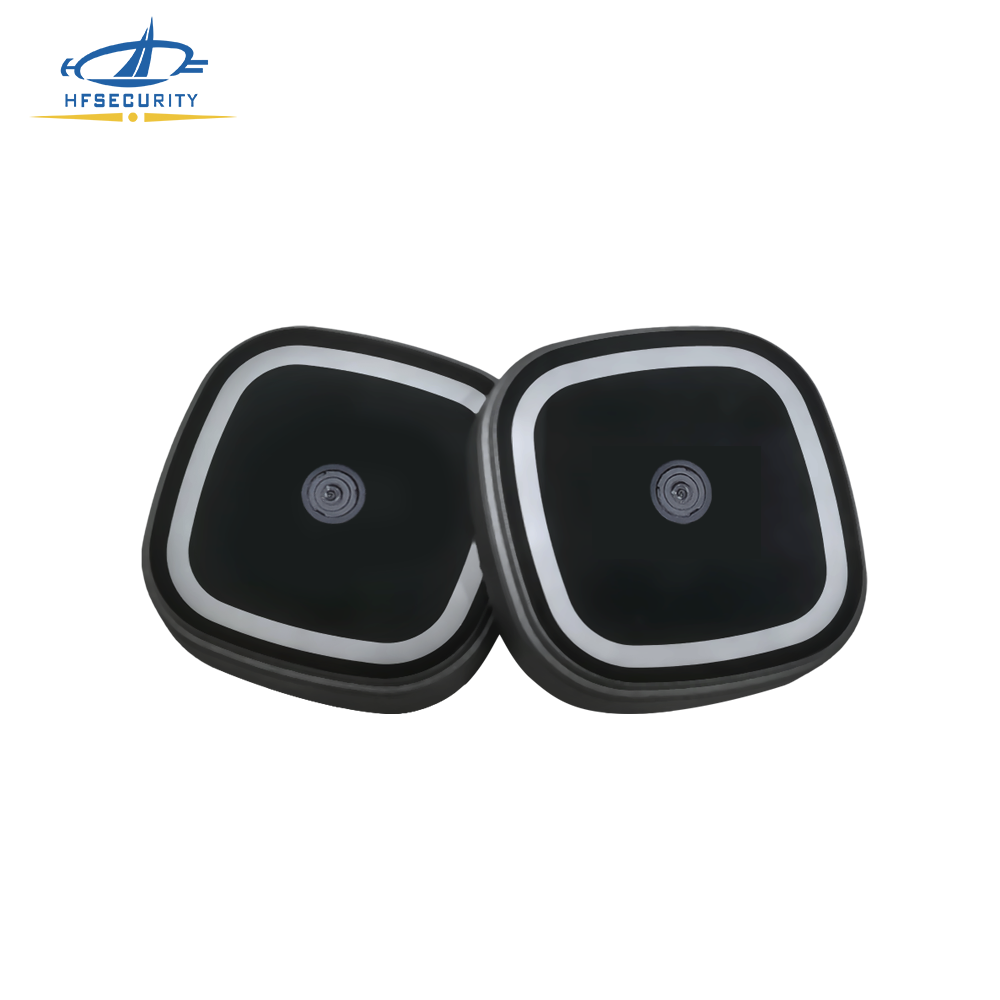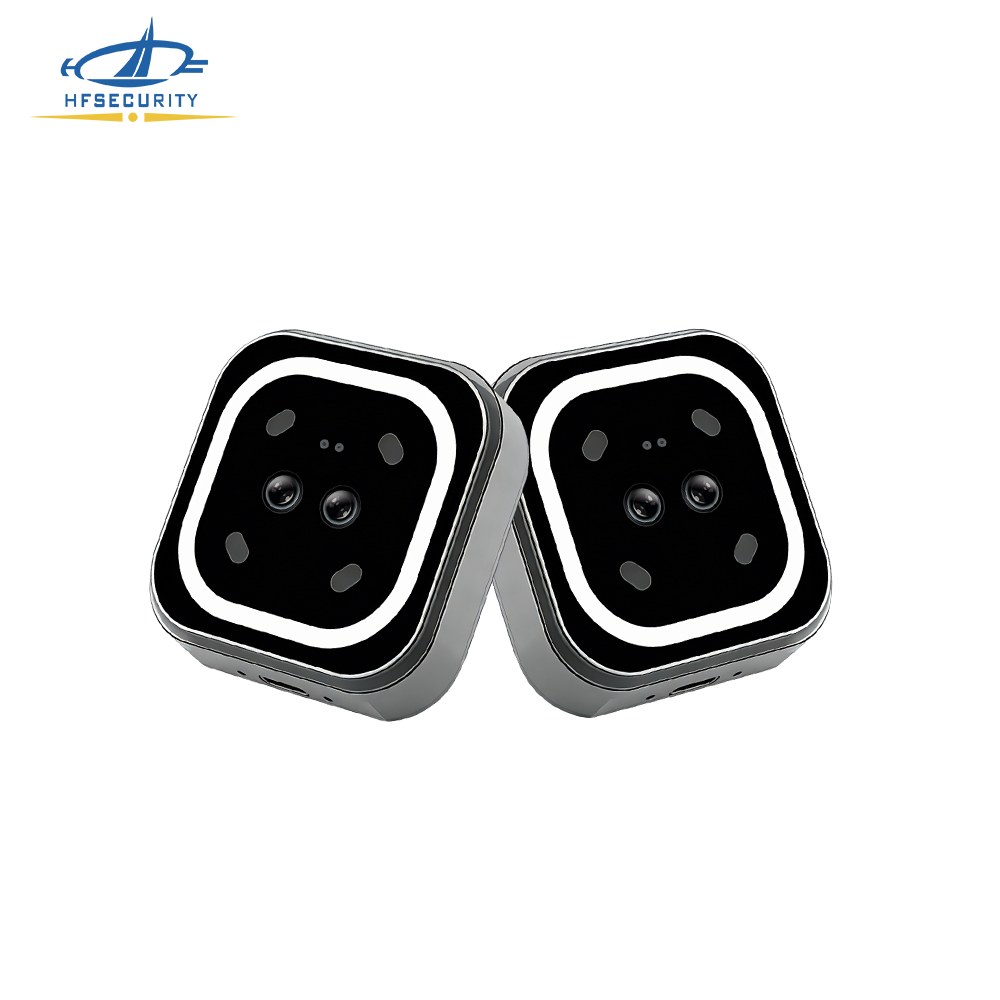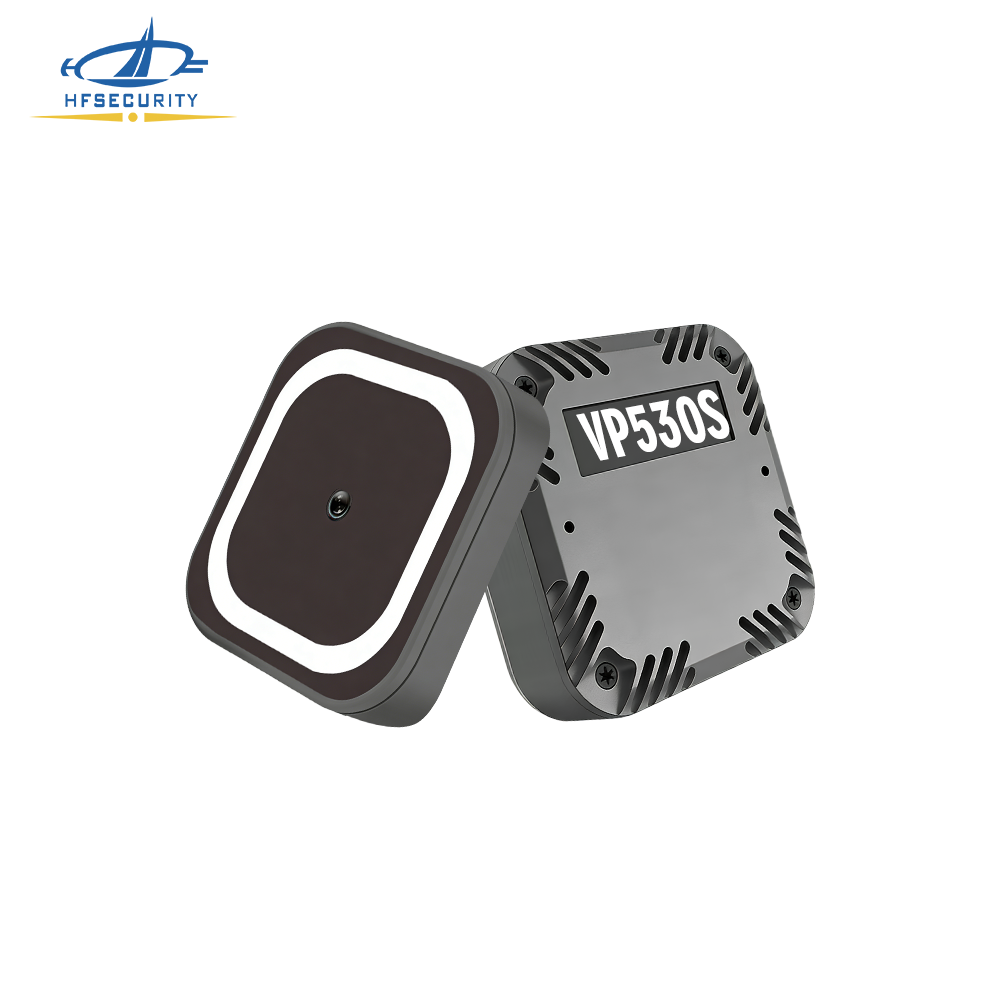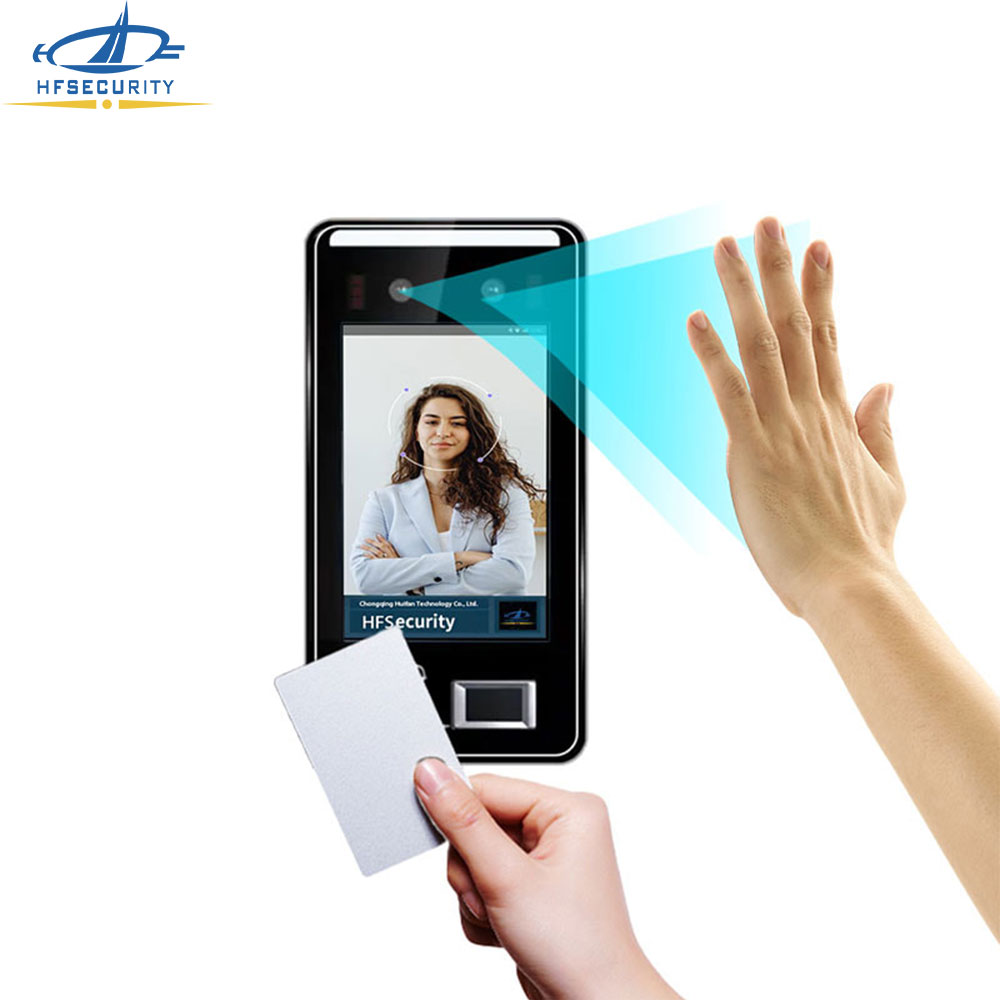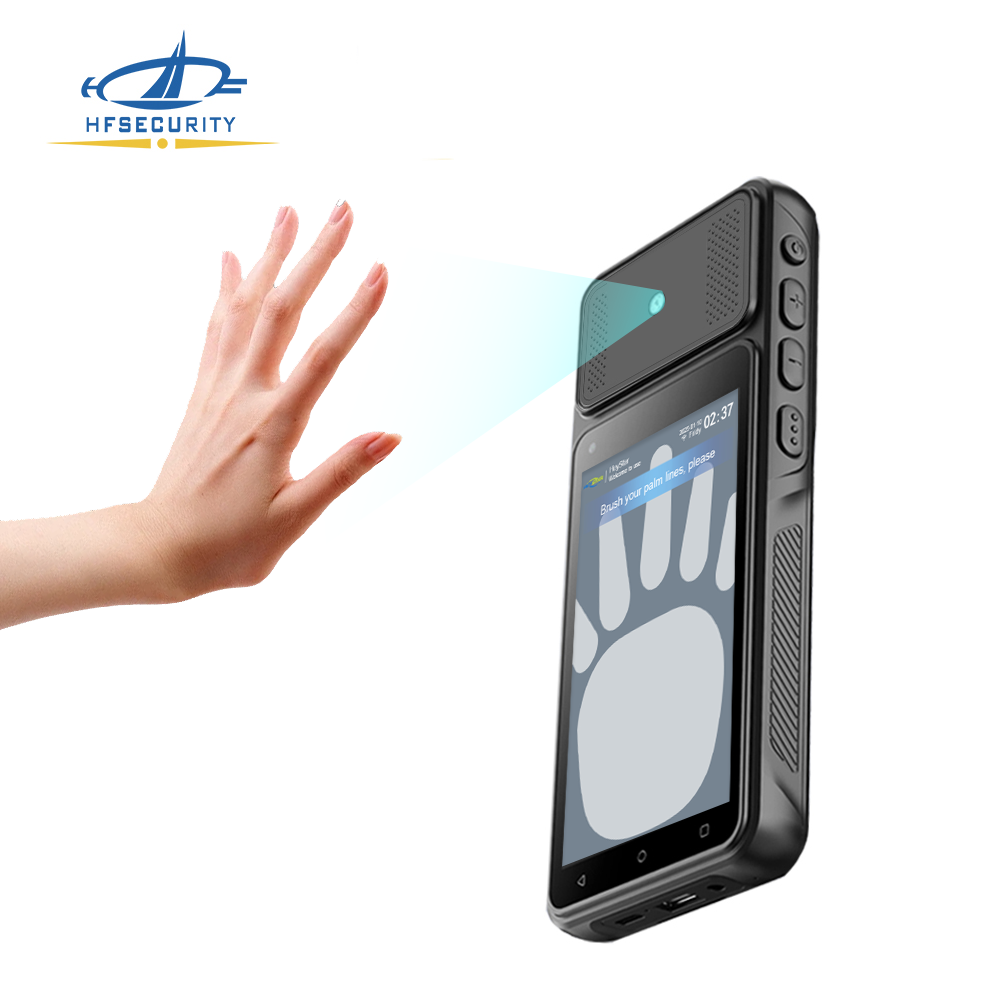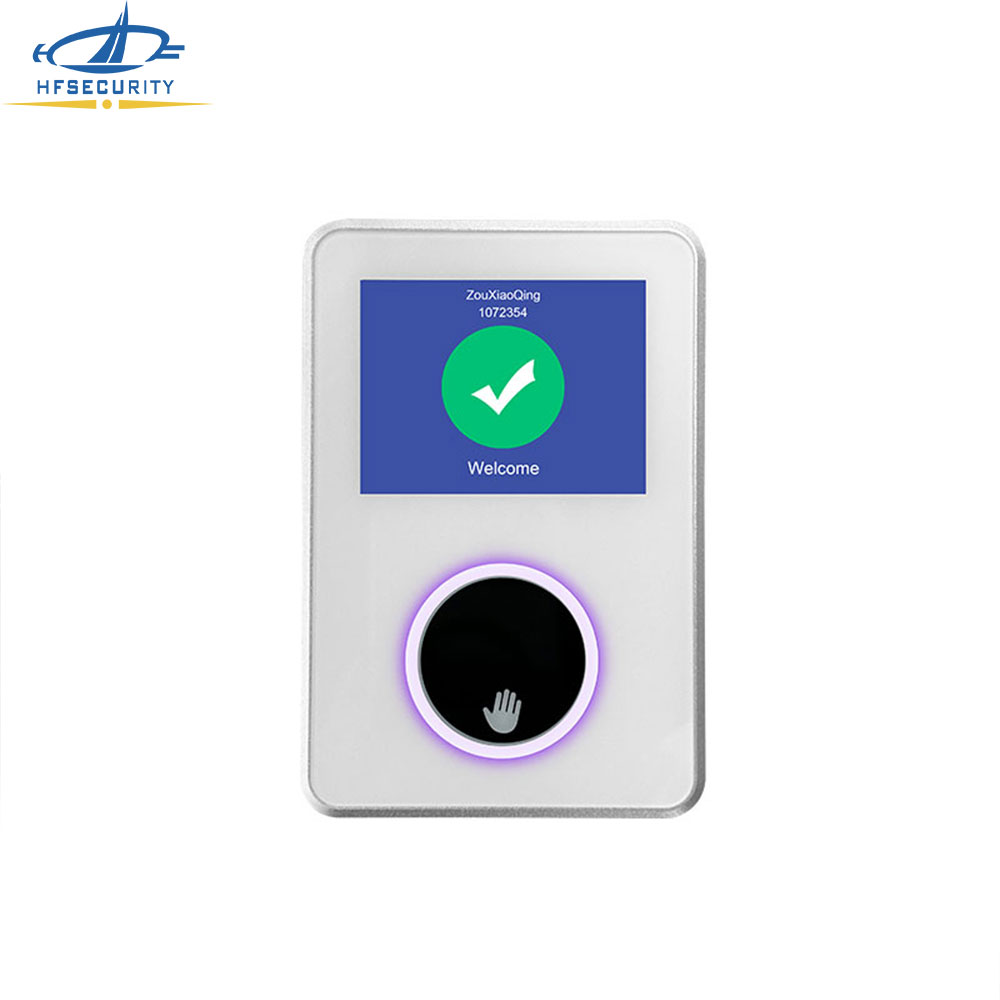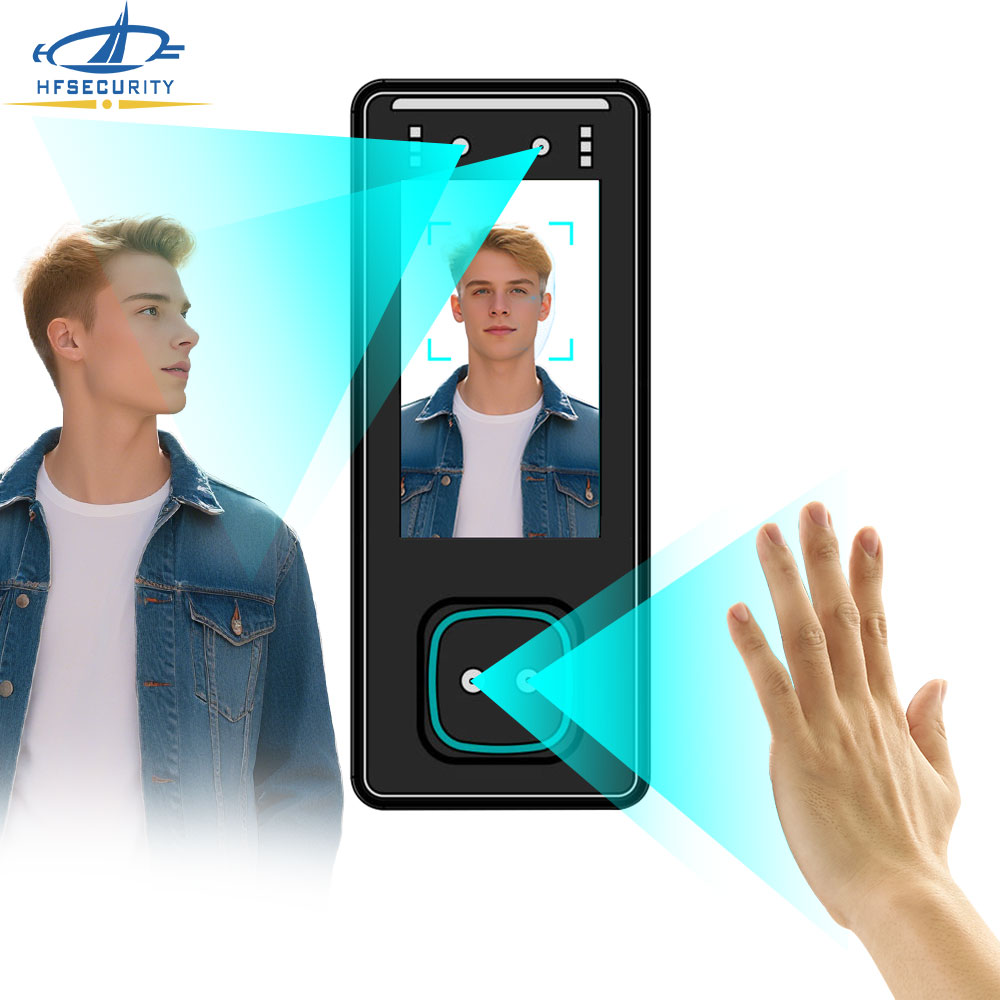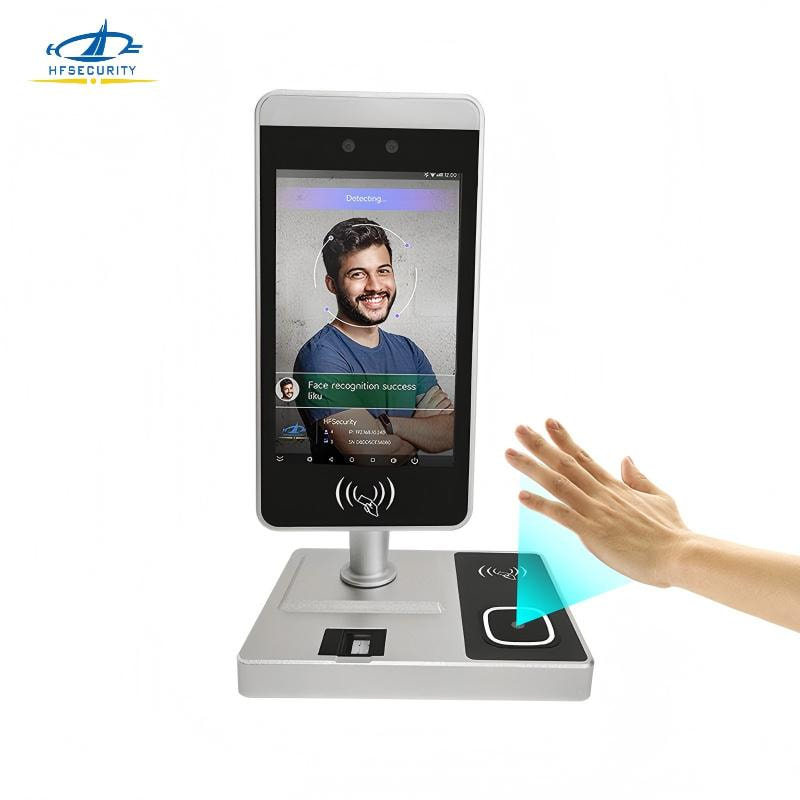Palm Vein Device Solution Supplier
Palm vein device, also known as a palm vein recognition system or palm vein scanner, utilizes the unique patterns of veins in an individual’s palm for identification and authentication. These vein patterns, distinctive to each person and relatively stable over time, are captured using near-infrared light in the image acquisition process. Hemoglobin in the blood absorbs this light, rendering the veins as dark lines in the captured image.
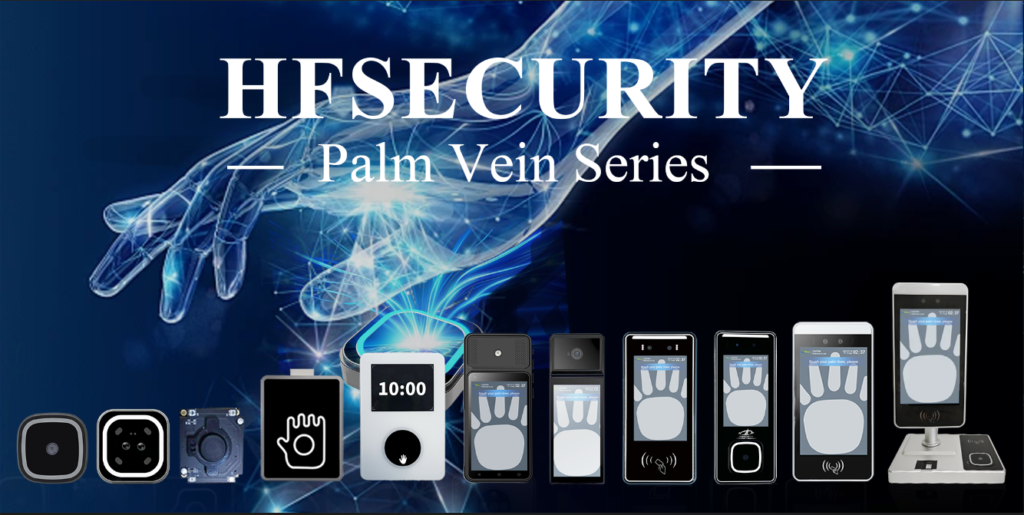
Biometric Palm Vein Scan Manufacturer
HFSecurity is a leading manufacturer of biometric palm vein products. Our products are used in a variety of applications, including security, identification, and time and attendance. HFSecurity’s products are based on our proprietary Palm Vein Authentication Technology (PVAT), also called PVRwhich is one of the most accurate and reliable biometric authentication technologies available. PVAT uses the unique patterns in an individual’s palm veins to create a template that can be used for authentication. HFSecurity’s products are highly secure and scalable, and can be easily integrated into existing systems. In addition, our products are backed by our industry-leading customer support. Contact us today to learn more about our products and how we can help you secure your facility.
Palm Vein Device Supplier HFSECURITY
All You Need To Know About Biometric Palm Vein
Biometric palm vein recognition technology uses the unique patterns of veins in a person’s hand to identify them. This type of authentication is considered to be highly accurate and is often used in high-security situations. In addition, biometric palm vein recognition is difficult to spoof and is not affected by factors like dirt or sweat. Palm vein recognition technology can be used for a variety of purposes, including access control, time and attendance tracking, and identity verification. If you’re looking for a secure way to authenticate users, biometric palm vein recognition may be the right solution for you.
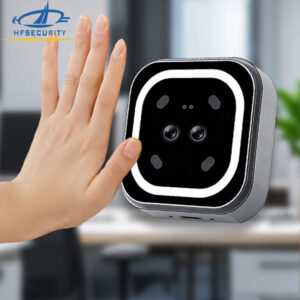
The purpose of biometric palm vein technology is to provide a secure and convenient way to authenticate individuals. This technology uses the unique pattern of veins in a person’s palm to create a template that can be used for verification. This template is then stored in a database and compared to future scans to confirm the identity of the individual. Biometric palm vein technology is used in a variety of applications, including access control, time and attendance, and cashless vending. This technology is often used in high-security environments where accuracy and convenience are paramount.
The infrared light illuminates the veins in your palm
The camera captures an image of the veins
The processor then analyzes the image and extracts information about the vein pattern
This information is then displayed on the screen for further analysis
Unlike other biometric technologies that rely on external features like fingerprints or iris scanning, palm vein relies on an internal body part – the veins in your hand. These veins are unique to each individual and remain constant over time, making them an ideal basis for identification. To use this technology, all you need to do is place your hand on a special scanner. The scanner will then map your vein pattern and use it to verify your identity.
When the palm vein is used for authentication, the image feature of the palm vein is acquired, which is a feature that exists only when the palm is alive. In this system, the image feature of the vein is not available for non-living palms, and thus cannot be identified and thus cannot be falsified.
When the palm vein is used for authentication, the vein image feature inside the palm is acquired, not the image feature on the surface of the palm. Therefore, there are no barriers to identification due to damage, wear, dryness or wetness of the palm surface.
When using the palm vein for authentication, the palm does not need to be in contact with the device when acquiring the palm vein image, and the identification is done with a gentle release. This method is free from the problem of unhygienic hand contact with the device and the security problems caused by the possibility of copying finger surface features.
The palm vein recognition system has a high security level and is especially suitable for use in places with high security requirements.
First and foremost, you’ll want to make sure that the scanner is compatible with your existing computer system
You can find them online, in stores, or through the manufacturer.If you buy online, you’ll want to make sure that you buy from a reputable seller.
If you buy in a store, you’ll be able to see the scanner in person and ask questions about it.
Finally, if you buy through the manufacturer, you can be sure that you’re getting a high-quality product
In addition, you’ll need to decide whether you want a USB- or PS/2-based scanner. Palm vein scanners typically come in two different form factors: standalone devices that can be used without a computer, and “plug-and-play” devices that must be connected to a computer in order to work.
If you only need to scan one individual at a time, a single-user device will suffice; however, if you need to scan multiple people, you’ll need to purchase a multi-user device.
Palm vein scanners typically have an accuracy rate of between 97% and 99%, but if you require a higher degree of accuracy, you may need to purchase a more expensive model

